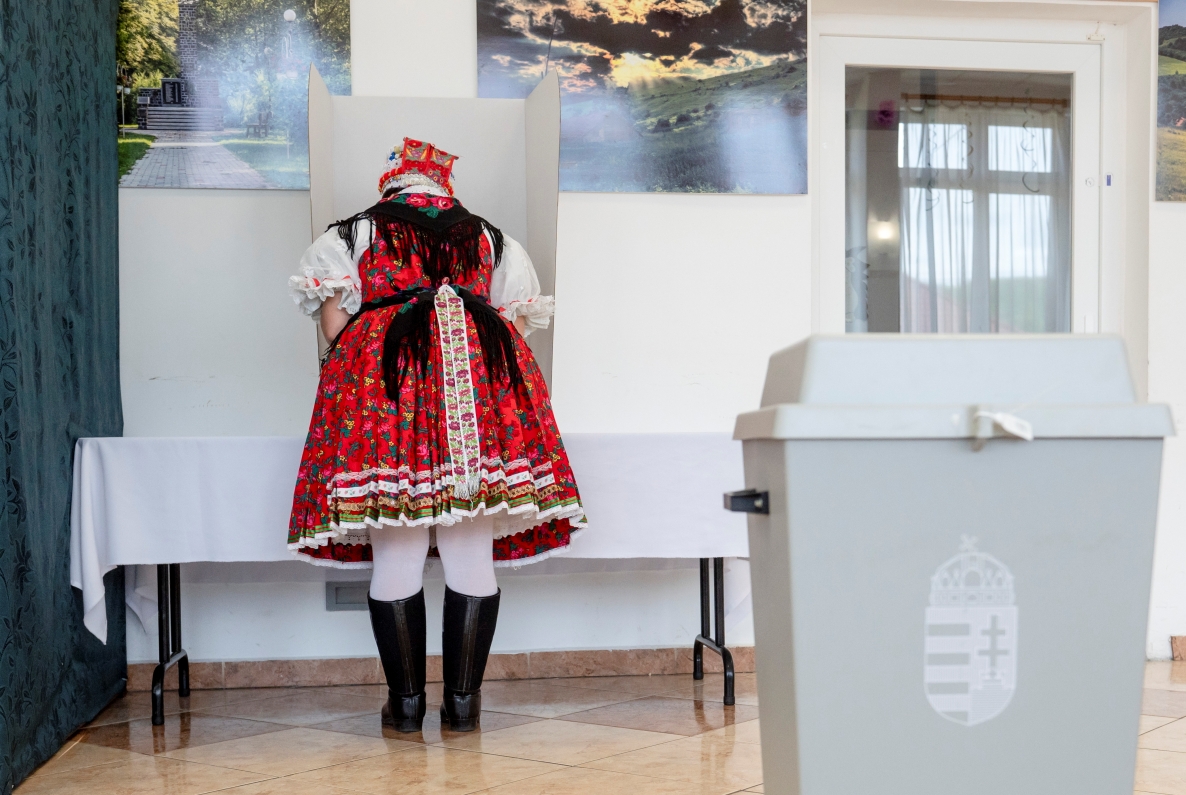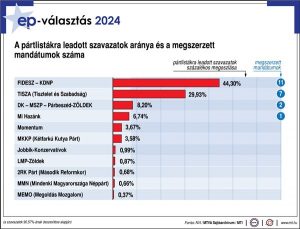
The PM hopes for a renaissance of the political right in Europe.Continue reading

Polling Stations closed in Hungary at 7pm. Despite the government party Fidesz winning by a clear margin, the rest of the Hungarian political landscape has gone through a shocking transformation.
Polls suggest that Fidesz have collected the most votes with 44.6%, down 7% from 2019 (51.5%). They are expected to have 11 MEPs instead of the previous 13. The moderate drop in popularity may raise some concerns among their national-conservative followers, yet it is the left-wing opposition that had suffered a near complete wipe-out during these European Parliament elections.

Prime Minister Viktor Orbán with wife Anikó Lévai casting their votes. Photo: MTI/Koszticsák Szilárd
The rise-and-rise of the center-left’s newcomer Péter Magyar has completely reorganized the opposition political landscape. He is projected to win some 29.7% of the vote despite only entering politics a few months ago. The former husband of Fidesz’ ex-justice minister, Judit Varga, who has entered the electoral ring among scandalous circumstances after a very public split from his wife, is now expected to send as many as six MEP’s to Strasbourg.

Péter Magyar, leader of the Tisza Party Photo: MTI/Hegedüs Róbert
This is bad news for both the far-left Momentum movement, who have in the past four years “distinguished” themselves with voting for every punitive measure against their homeland, and campaigning against candidates of the Hungarian minority in neighboring countries. They will not be able to send any of their members to the EP, even though they were on 10% in 2019. The same applies to the formerly radical right-wing party Jobbik, who have suffered a crushing electoral defeat (6.3% in 2019). But the Tisza Party has also managed to snatch some 50% of the largest opposition party, DK’s supporters, whose 2019 electoral tally of 16% has now been halved to only 8.1%.

Chart: MTI
Despite his meteoric rise among opposition voters, little is known about Péter Magyar, other than he strongly dislikes the current government and the Prime Minister. He has entered politics with an astonishingly crass move by publishing a secret voice recording of a row with his former wife, Justice Minister Judit Varga. He is also accused of being financed by the same foreign group tied to George Soros that had sponsored the Hungarian opposition’s 2022 parliamentary election campaign. Yet his youthful appearance and constant criticism of the government has won him a large following among disillusioned opposition supporters, who are dissatisfied with the Hungarian left’s inability to put a dent in Viktor Orbán’s popularity.
As to the results in neighboring countries where the numbers of the Hungarian minority is above five percent, the EP elections have brought mixed results. In Slovakia, where Hungarians make up some 8% of the populations, their party, Alliance (Magyar Szövetség), has only managed to collect 3.9% of the vote, as many Hungarians have voted for Slovak parties, such as the far-left Progressive Slovakia that is increasingly popular among young and liberal-leaning voters. In Romania, however, election night has ended with an enormous victory for the Democratic Alliance of Hungarians in Romania (RMDSZ), who have reached the 5% threshold necessary for EP mandates. They can expect to send two of their MEPs to Strasbourg.
Featured Image: MTI/Komka Péter